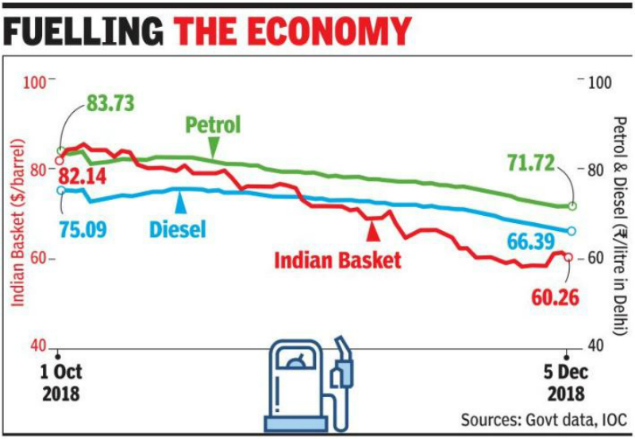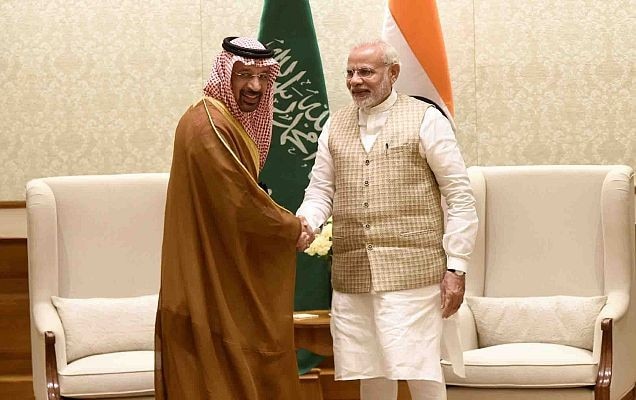NEW DELHI: PM Modi’s voice against high oil prices counts much for Opec and forms a valuable component of deliberations by the grouping of 14 countries. The acknowledgement of India’s positon in the global oil market came from none other than Khalid A Al-Falih, oil minister of Saudi Arabia — the de-facto leader of Opec — on Thursday in Vienna where the grouping’s oil ministers are assembled to discuss an output cut to shore up crude prices.
“We just met with him (Modi) at Buenos Aires (during the G-20 summit) and privately he made those points of view very strongly that he does care for Indian consumers. I’ve seen him three times in India at various energy events in India. He also was very vocal (against high oil prices),” Bloomberg TV showed Falih telling reporters in Vienna.
Under Modi’s leadership, India’s voice has found a new heft as the world’s fastest-growing large economy and the third-largest oil consumer. The pace of the country’s economic growth is seen driving incremental demand for oil through the next decade or so.

PM Modi, assisted by oil minister Dharmendra Pradhan, has tirelessly driven the dialogue for reasonable oil pricing, trying to reason that it is in the long-term interest of the producer-countries. Modi bluntly told global oil bosses, including Falih, who had assembled for a brainstorming session in October, that they were killing their ‘golden goose’ (consumer countries) by keeping oil prices high.
Pradhan has been laying the groundwork, forcefully making a case for a stable pricing regime. High prices will stunt growth and reduce demand, eventually hurting producer countries. This has been his basic argument in meeting after meeting with Opec officials and counterparts from group members.
In Vienna, however, Falih still made a case for an output cut deal. “But at the end of the day, our most important guiding principle is to bring supply-demand into balance. We don’t think the US will benefit from an oversupplied market for an extended period where investment flow stops…” Falih said. To a question whether the US president was responsible for bringing down oil prices, Falih said Trump was the president of the largest oil consuming country — accounting for 20% of the global market. Just as US consumers wish for affordable energy, so do consumers “in France, in India, in Saudi Arabia”.
“He has every right to wish for affordability of energy for citizens of US. But we also take the views of PM Modi, who is equally welcome,” Falih said.
Source: ToI
Image Courtesy:Narendra Modi
You may also like
-
Trade Connect E-platform For Exports Is Single Window, Fast, Accessible And Transformational: Shri Piyush Goyal
-
Dot Simplifies Approval Processes For Telecom Licenses And Wireless Equipment
-
Coal Production and Supply Trends on Positive Trajectory
-
Union Minister To Release Booklets On Promotion Of Indigenous Species & Conservation Of States Fishes
-
2nd India-Japan Finance Dialogue held in Tokyo on 6th September, 2024
